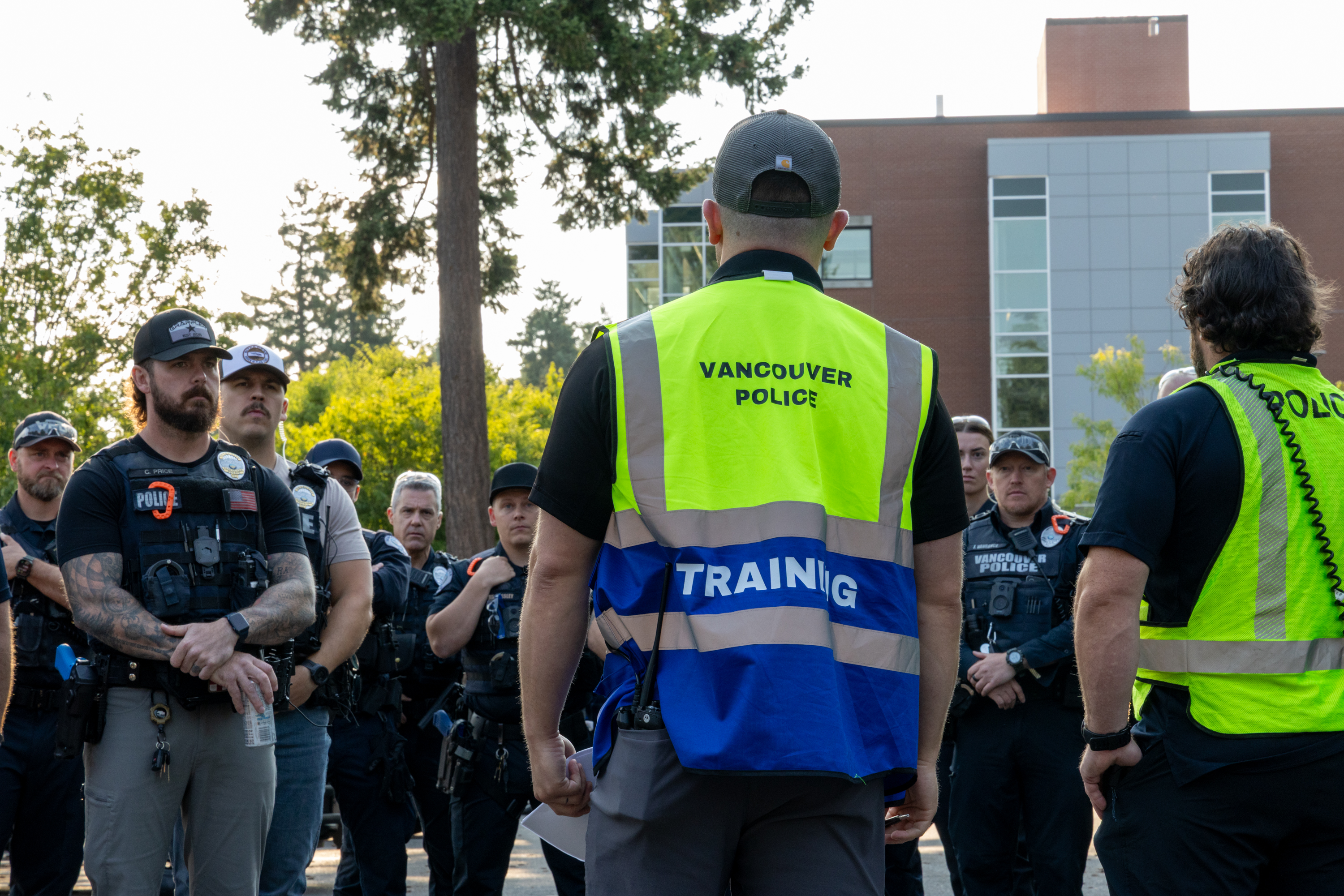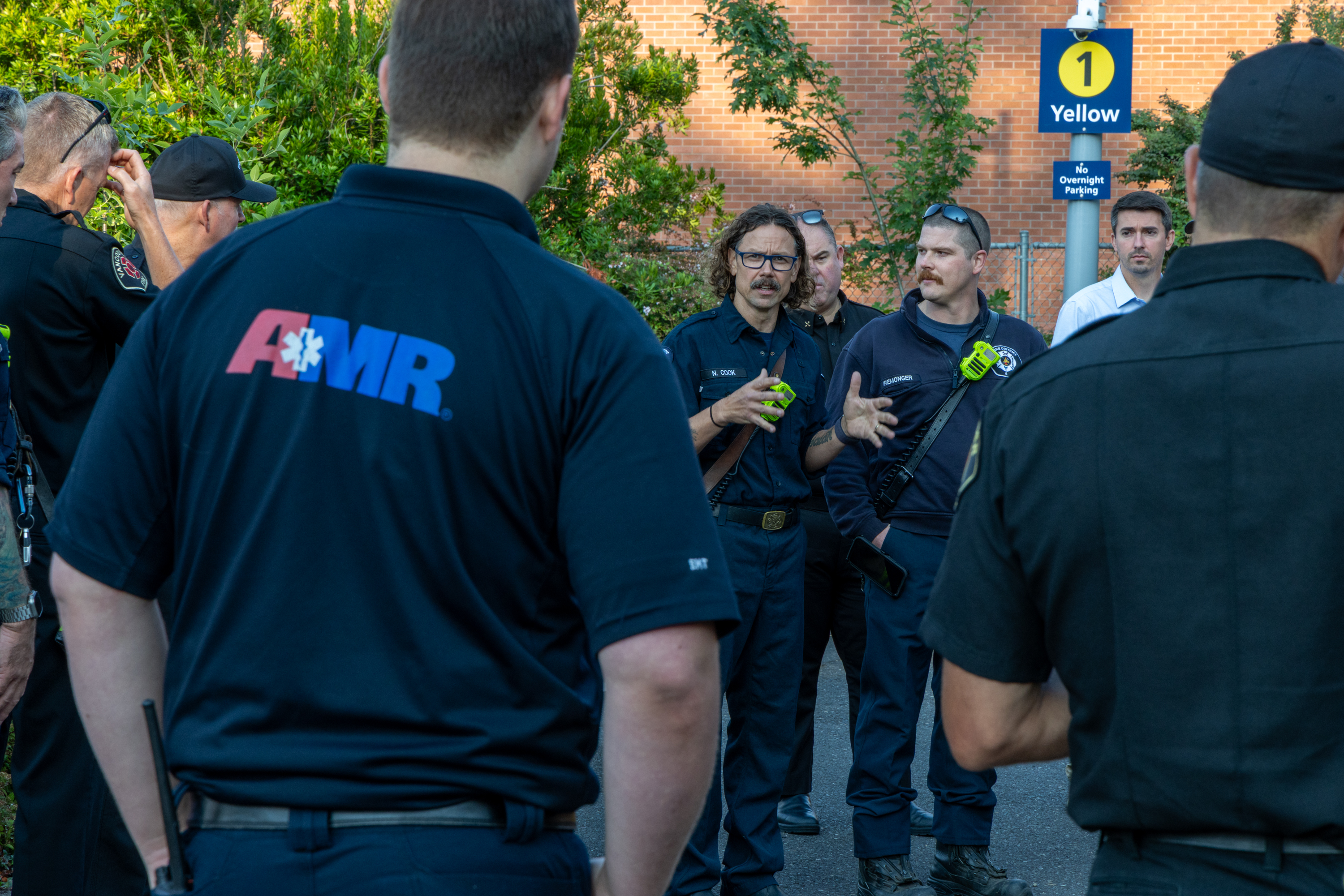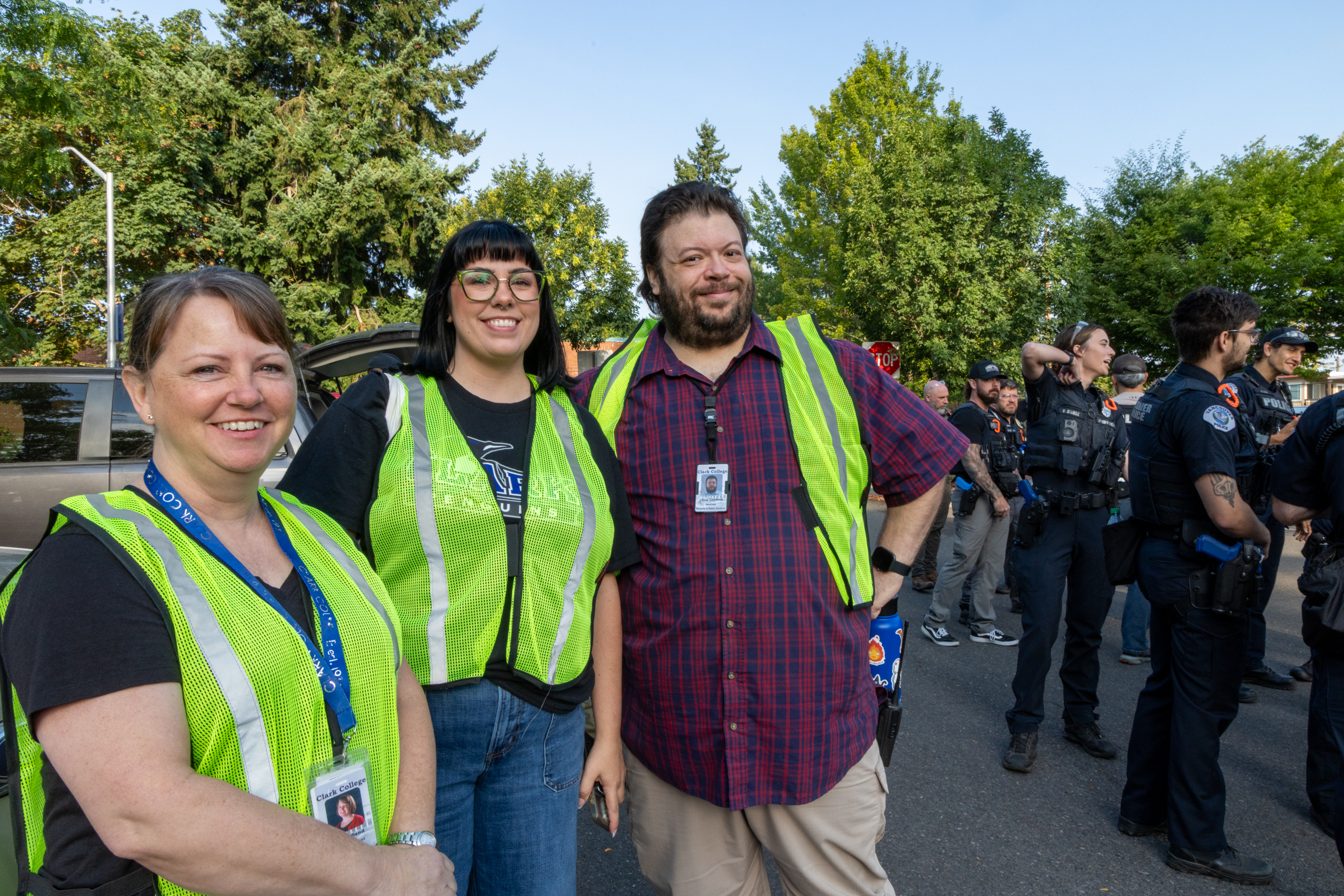Emergency Partners Test Response Skills
Clark’s safety team and local emergency responders simulate real-life crisis and practice response skills

Vancouver first responders, including the Vancouver Police, train on-site at the STEM Building.
On the morning of September 2, Clark College hosted a full-scale active threat drill in partnership with Vancouver Police, Vancouver Fire, American Medical Response (AMR), and Clark Regional Emergency Services Agency (CRESA). From the Incident Command post, I had the opportunity to observe how quickly our responders moved and how effectively they communicated, coordinated, and adapted in real time.
The exercise took place in the STEM building and included volunteer crisis actors, building searches, and medical triage. The goal was to simulate conditions as close to real life as possible, as mirroring reality is the best way to truly test their skills.
For me, the most valuable part of the day wasn’t watching the exercise unfold but witnessing the behind-the-scenes teamwork. Agencies from across the region were thrown into a tense, fast-paced, and intentionally chaotic scenario, yet leaders from law enforcement, fire, ambulance, and dispatch constantly checked information, clarified roles, and adjusted strategies as new challenges arose.

Many agencies, including the American Medical Response (AMR), were on hand.
After the drill, we joined debrief sessions where responders openly discussed what worked well and what could be improved. That willingness to pause, reflect, and learn is what makes these drills so essential. While we all hope Clark College never experiences a real active threat event, it’s critical that those responsible for responding have already practiced side by side.
The exercise also served as an important reminder that these drills aren’t just about first responders—they also include our campus community. The way lockdowns are communicated, how information is shared, and how individuals respond are all elements that shape our overall readiness.
This event would not have come together without the planning and leadership of Emergency Manager, Lindsey McKim, who was pivotal in organizing and coordinating the day’s activities. On the ground, Clark’s Sergeant Eben Ayers and Officer Anthony Peitzmeier were actively involved in the roleplaying scenarios, assisting where needed and gaining invaluable firsthand experience in how regional partners respond during a crisis.
The importance of this preparation cannot be overstated. Recent incidents in the news are sobering reminders that schools and colleges are not immune to this type of threat. Every drill, every training, and every conversation about readiness is part of honoring lives lost by ensuring we are better prepared here.
At the end of the day, I left with a deep sense of gratitude—for the professionalism of our partner agencies, the willingness of Clark College to support this type of training, the opportunity to lead such an amazing Security team, and for a community that takes safety seriously, even when the subject matter is difficult.
We will continue to prepare, practice, and improve to ensure safety for all at Clark College.
Learn More About Safety & Security at Clark College

Left to right: Sabra Sand, Lindsey McKim, and Chris Layfield were at the event along with other members of the security team.
The Clark College Security and Safety team works to ensure a safe and orderly environment for members of the college community. When an emergency occurs at Clark, our safety and speedy recovery depend on existing levels of preparedness and coordinated response from students, employees, and visitors.
I encourage Clark employees to attend the emergency response workshops held throughout the year because it’s important that each of us is prepared to support one another in times of emergency.
Learn what the college is doing to prepare for an emergency and how you can help by visiting the Emergencies at Clark College website and reviewing the Emergency Procedures video. You can also be prepared by signing up for RAVE Alerts to receive emergency notifications—find RAVE login instructions here.
Photos: Clark College/Jenny Shadley
Story by Chris Layfield, Director of Safety and Security
